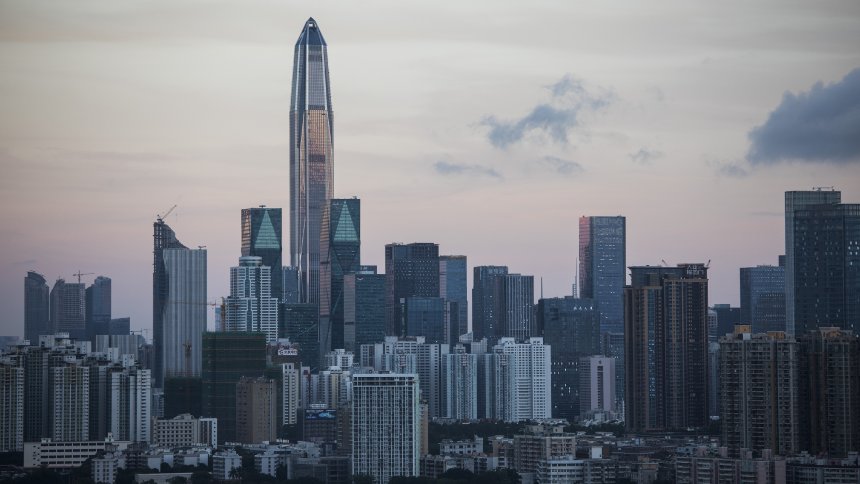China cannot “encroach” on Hong Kong anymore than Russia could “encroach” on Moscow. Hong Kong owes its existence to the humiliating imperialist-exploitation relationship between the (now thankfully finished) British Empire (and its Opium Wars) to the vast mass of China. For the entire 150 years of HK’s existence under British rule there was not the remotest trace of “democracy”; the island was under a crown-appointed governor. Today’s protesters in Hong Kong are (whatever is in their heads) a petty-bourgeois counter-revolutionary mob - and they are parading around behind the Stars and Stripes and playing the US imperialist national anthem to prove it. They are on the US imperialist side in the class war. They are not trying to make Hong Kong more socialist, let alone more communist. Financing for the ringleaders comes from US billionaires, the CIA and MI6.
It is a pity that Beijing’s propaganda and, most of all perspectives for the world’s future, are not clearer about about global monopoly-capitalism descending into inter-imperialist trade war, financial turmoil and shooting war, because such clarity would reinforce the need for the 1949 socialist revolution and the building of socialism today - which might help the protesters think again about the value of trashing their own city; but nevertheless China is a thousand times right to take steps to defeat this anti-communist upsurge and it is high time for the Chinese workers state to assert its authority.
Shilly-shallying about taking action in the global class war is one of the typical weaknesses of revisionism, and the revisionism of China’s CP colours all its perspectives, including the virtues and pitfalls of building mega-cities.
One of the key Marxist concepts about leading the world to a far more civilised, socialist future is trying to end the separation between town and country. Since agriculture is the heart of secure human existence on the planet, all socialist construction needs to work to make “rural” life as advanced in useful tech, telecoms, healthcare, and social life as life is for those divorced from the soil living in urban skyscrapers.
Marx says: The existence of the town implies, at the same time, the necessity of administration, police, taxes, etc.; in short, of the municipality, and thus of politics in general. Here first became manifest the division of the population into two great classes, which is directly based on the division of labour and on the instruments of production. The town already is in actual fact the concentration of the population, of the instruments of production, of capital, of pleasures, of needs, while the country demonstrates just the opposite fact, isolation and separation. The antagonism between town and country can only exist within the framework of private property. It is the most crass expression of the subjection of the individual under the division of labour, under a definite activity forced upon him — a subjection which makes one man into a restricted town-animal, the other into a restricted country-animal, and daily creates anew the conflict between their interests. Labour is here again the chief thing, power over individuals, and as long as the latter exists, private property must exist. The abolition of the antagonism between town and country is one of the first conditions of communal life, a condition which again depends on a mass of material premises and which cannot be fulfilled by the mere will, as anyone can see at the first glance. (End quote from “The German Ideology”)
Dialectically therefore, endless expansion of city life presupposes endless requirement for the state; this therefore implies that the withering away of the state will be helped on its way by the softening and then erasure of the differences between city and country.
Perhaps China is aping urban expansion in emulation of the West (to prove the virtues of central planning in the running of its vast economy incorporating large capitalist enterprise elements) just when it should be thinking about monopoly-capitalism being ended everywhere else in the world by socialist revolution as capitalism disgraces itself in slump, war and fascism, and then (very long term) thinking about how socialism could be better built by working harder to erase the differences between town and country?
Human beings, being animals, remain in need of connection to the very soil and water we depend on, and maybe for more than the occasional holiday. Why cover half the land in mega-cities if that is not our fully civilised future?
